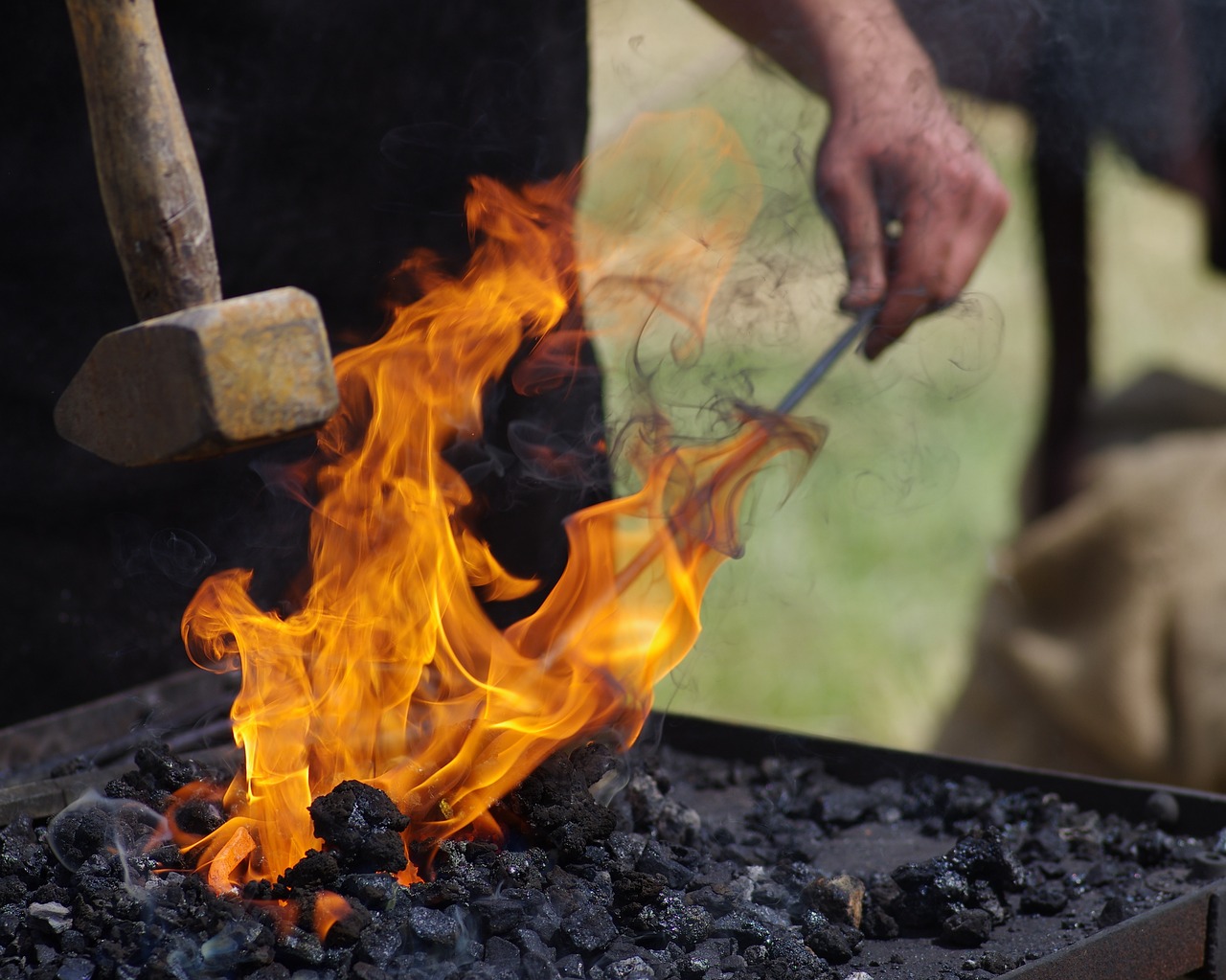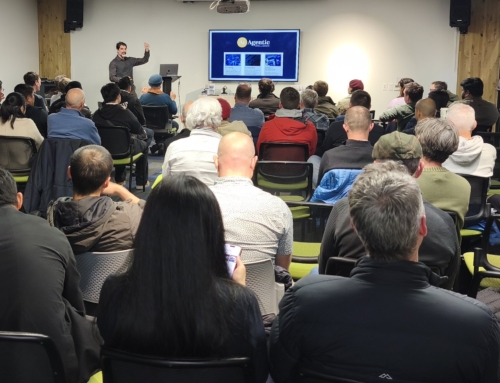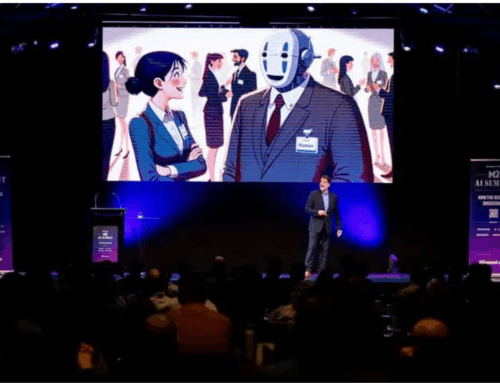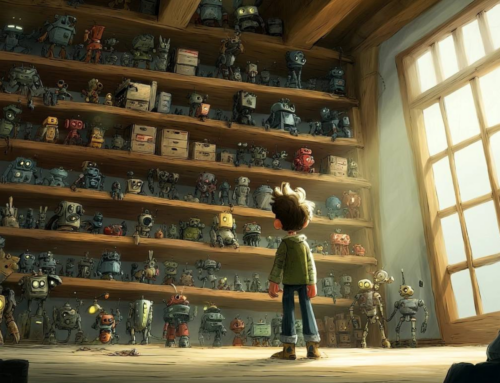One of the best things you can do to improve yourself is to fail at something new.
The first time you rode a bike, you failed. Repeatedly. And if you were willing to get up and try again, and again, you learned a new skill. Failure was the price you paid to learn.
Becoming Friends with Failure
Recently I went to a flips class at a Portland parkour training facility. They were working on side flips, and I had never tried a side flip before.
(The side flip is like a back flip, but instead of tucking and flipping backwards, you flip to the side. It is very disorienting.)
This was the final class in a 4-week series, and everyone else (most of them athletes half my age) were proficient in the trick, and working on sticking the landing. I was flopping through the air like a fish. Being filmed by someone in the viewing area wasn’t helping; she was recording everyone’s runs and flips, and my flops.
I knew that if I was going to master this trick, I had to do two things: fail in front of others watching, and examine my failure closely.
 After a few reps, I was able to ignore the camera completely, and pretend it wasn’t there. Once I had defeated my natural inclination against failing in front of other people, I was ready to dive deeply into my failure.
After a few reps, I was able to ignore the camera completely, and pretend it wasn’t there. Once I had defeated my natural inclination against failing in front of other people, I was ready to dive deeply into my failure.
Every flip was spinning me along 2 different axes, instead of one. My leading hand, which was imitating the movements of others who were successfully doing the trick, went up and back before pulling strongly across my abdomen as I tucked. This gave a rotation in my shoulders that was confusing my spin.
By isolating the source of my failure, I was able to adjust my leading arm, and focus all of my horizontal momentum along one straight line.
Landing that first side flip made all the #failure worth it. Every bit.
— Caelan Huntress (@caelanmac) March 28, 2015
Don’t Fear Failing. Befriend Your Failures.
A fear of failure can keep you stunted, by preventing you from learning any peripheral skills, or mastering something different that you could be really good at.
Every time you fail, you are given crucial, experiential information that allows you to improve the skill you are working on.
Failure is a laboratory of learning. When you can welcome failure as your guide to mastery, you can accomplish anything you set your mind to do.

Untying Failure From Pain
Tony Robbins bases much of his personal development work on the “pain-pleasure principle.” Everything we do, he says, is done in order to avoid pain, or experience pleasure.
To make a new habit, he helps train people to associate pleasure to the new habit they want to incorporate, and disassociate pain from it.
To short-circuit the natural association we have between pain and failure, we just have to make a new association, and link pleasure to failing.
The reward of a new skill is enough for students who already on the path to mastery. But sometimes, that’s not enough, if your fear is too great; so, make your reward even greater.
Anytime I find myself resisting a failure, I select a reward that I have been denying myself, and mentally tie the reward to the failure. Maybe I want a new hat, but haven’t been able to justify the expense; I make a deal with myself that if I am willing to stay in the Forge of Failure for as long as it takes, once I have learned the new skill, I will go and buy myself the hat I want.
Whatever tricks you can play on your fear of failure, play them. It’s always worth it in the end.

The Forge of Failure is a paradoxical concept; we assume that mastery equals success, but the path to mastery does not go through success. You must travel through failure to reach success, or you will never find it.
When you try something new, and succeed on the first try, you haven’t really learned anything.
Beginner’s luck makes you a novice, and can prevent you from attaining mastery, if you rely on it.
Let’s say you pick up a bow and arrow, and on your very first try you hit a bullseye.
Great! You’re a natural! You must be a master, right?
Wrong.
What happens when the wind picks up, and blows your arrow off course? What if the fletching of your arrow is torn? What if it’s raining?
By experiencing and overcoming multiple failures, the true master is able to accommodate any potential failure, because the master has already experienced every failure.

After each failure, the growing master tries to repeat his task under the same circumstances, willing to fail as many times as he needs to fail, in order to master every condition.
This doesn’t change the difficulty of failure. It’s hard, and it exhausts you, and it hurts; but it is only in harsh conditions that you can make a stronger mettle.
In a forge, metal is heated, and burnt, and pounded. It’s not easy. But failure is a process to remove impurities, and reduce something to perfection.
Every time you fail, a little bit of the dross of the amateur is burned away, revealing the inner master within.










Great post, Caelan! This concept is so helpful for me this week. On my second attempt at my new jogging habit, I wiped out. I’m still in pain. Now, I see I’m no longer an amateur at falling while running. I may be more likely to catch myself midway next time! And it spurred my next blog post, too. All forging…
It is the only way to excel at anything. Avoiding risk is the path to mediocrity!
I agree with you, I love failing at something new, because it means the process of learning and mastering has begun, and know the next time I try it I will fail a bit less..
[…] I love this message, because the failures in life are often what makes us strong. You only gain the fortitude needed to withstand the fires if you go through the forge of failure. […]